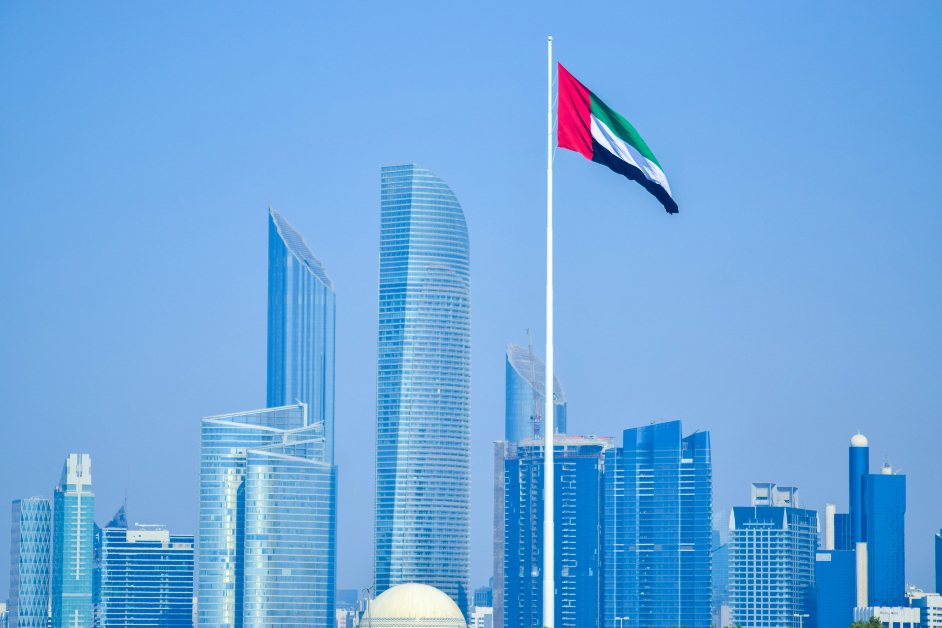The UAE has introduced a new work permit system designed to make employment procedures more efficient and transparent. Through digitalisation, AI-powered services, and enhanced flexibility, the system aims to strengthen regulation, attract talent, and simplify the experience for both employers and employees.
The work permit is an official authorisation that allows individuals to legally work in the UAE, forming an essential part of the country’s visa and residency framework under the Ministry of Human Resources and Emiratisation (MoHRE).
In this guide, we’ll break down how the new system works, including its key changes, permit types, eligibility conditions, and what both workers and employers need to know in 2025 and beyond.
- Key changes in the new work permit system 2025/2026
- Types of work permits and who they’re for
- Application and approval process
- Eligibility and conditions for employees
- Employer obligations and compliance
- Benefits of the new work permit system
- Risks and pitfalls in the new work permit system
- Tips for applicants and employers
- Key takeaways
- FAQs

Key changes in the new work permit system 2025/2026
The UAE’s new work permit system brings faster, smarter, and more flexible employment procedures under MoHRE. Focused on digitalisation and efficiency, the updates simplify processes for employers and employees. Here’s a look at the key changes ,from AI-driven approvals to new permit types and clearer compliance rules.
Digital and AI-driven processes
The UAE has launched an artificial-intelligence system known as “Eye” which automates key parts of the work permit process, verifying documents like passports, academic certificates and photos to reduce human intervention and speed up approvals.
Expanded permit types & flexibility
The Ministry of Human Resources and Emiratisation (MoHRE) issues 12 to 13 types of work permits to accommodate diverse employment scenarios, including standard full-time roles, part-time positions, internal transfers, student training programs, and family-sponsored work.
Temporary work permits now must complete their procedures within 60 days. Failure to do so may breach compliance rules.
New visa & permit schemes related to work
One notable change is expanded self-sponsorship routes, especially via the Green Visa, for freelancers and skilled professionals. This gives more flexibility to those who previously needed traditional employer sponsorship.
Additionally, standard employment visa options are being streamlined, with clearer eligibility criteria and faster renewals in 2025.
Employer & employee responsibilities in the new work permit system
Under the new work permit system, employers must register with MoHRE, maintain active trade licences, quota compliance, and submit the work permit application before the employee begins work.
Employees must ensure their permit, visa, and residence status remain valid, working without a valid permit is illegal.
Types of work permits and who they’re for
The UAE’s work permit system offers a wide range of options to accommodate various employment situations, from traditional full-time roles to freelance and family-sponsored work. Each permit type is designed to ensure flexibility, compliance, and inclusion across the private sector.
Standard work permit
Issued for full-time employment in the private sector and valid for up to two years, renewable upon meeting MoHRE conditions.
Transfer or internal hire permit
Allows an employee to move from one registered employer to another within the UAE without leaving the country, simplifying mobility in the labour market.
Temporary or one-mission permits
Designed for fixed-term projects or assignments, typically lasting up to six months, often used for consultancy, seasonal, or short-term roles.
Part-time work permit
Allows individuals to work for fewer hours or multiple employers simultaneously, ideal for professionals seeking flexibility.
Student training permit
Issued to students aged 15 and above who wish to gain experience through internships or on-the-job training while studying in the UAE.
Juvenile work permit
Designed for young individuals aged 15–18, enabling them to work under strict conditions, such as limited hours and mandatory employer safety measures, in compliance with UAE labour laws. This permit is valid for one year.
Golden Visa Permit
This permit applies to companies wishing to employ individuals who already hold a UAE Golden Residency Visa. While Golden Visa holders can live and work in the country, employers must still obtain a work permit through MoHRE to formalise the employment relationship.
The permit is valid for two years and ensures that Golden Visa professionals are registered under the correct labour framework while retaining their long-term residency benefits.

Application and approval process
The new work permit system streamlines every stage, from application to final approval, through digital integration and clear guidelines. Employers and employees must complete specific steps to ensure compliance and smooth processing under the new regulations.
Pre-application requirements
The employer must hold a valid license, maintain permitted quotas, and have no outstanding violations.
The employee must satisfy the job requirements (education, experience) based on the permit category.
Steps to apply for UAE work permit
- Employer initiates the permit via MoHRE or the Work Bundle portal.
- Entry permit / visa granted.
- Employee completes medical screening and Emirates ID registration.
- Residency visa stamping to finalise the permit.
Processing times and validity
- Temporary permits must finish procedures within 60 days.
- Standard work permits typically last two years, subject to renewal.
Renewal, cancellation and porting
Permits need renewal before expiry. If employment ends, cancellation is required.
Porting (transferring employers) must follow new rules around permit types and timelines.
Digital tools and monitoring
MoHRE e-services and employer portals provide permit status tracking, alerts for expiry, and digital compliance checks.
Eligibility and conditions for employees
To qualify for a UAE work permit, applicants must meet specific professional, educational, and legal standards set by MoHRE. These conditions ensure that workers are appropriately skilled, healthy, and legally authorised to work within the country. Below are the key eligibility requirements for employees under the new work permit system.
Academic and experience criteria
Specific permit categories (especially temporary or specialist roles) require authenticated educational qualifications and work experience.
Income – salary requirements
Self-sponsorship and freelance permit holders must meet minimum income thresholds set by MoHRE.
Age, health and other conditions
Applicants must satisfy age limits and pass health and security checks. Juvenile permits have additional constraints.
Legal working status
Working without a valid permit and matching visa or residency is illegal and can result in fines or deportation.

Employer obligations and compliance
- Employers must always apply for the correct permit type before employment starts.
- Maintain signed employment contracts, records, and correct permit classification.
- Track renewal dates, quotas, and legal obligations; failure to comply can lead to sanctions.
- Update MoHRE if roles change or transfers occur, and ensure all permits remain valid.
Benefits of the new work permit system
- Faster, more efficient processing via digital and AI infrastructure.
- Greater flexibility with permit types (part-time, temporary, freelance).
- Clearer rules for both employers and employees across categories and rights.
- Aligns with UAE’s goal of attracting global talent and empowering economic diversification.
Risks and pitfalls in the new work permit system
- Applying under the wrong permit type can lead to legal consequences.
- Be mindful of the 60-day rule: temporary permit procedures must be completed in time.
- Letting a permit or visa expire can risk your legal status.
- The complexity of multiple permit types means errors can happen, consult HR or legal advisors if unsure.
Tips for applicants and employers
- Start early: verify employer licence, quota status, and gather documents in advance.
- Use digital portals (Work Bundle, MoHRE) to submit and track applications.
- Always match your permit type (full-time, part-time, temporary) to your work situation.
- Keep your permit, contract, and visa documents easily accessible.
- If changing jobs, review transfer and cancellation rules ahead of time.
- For freelancers/self-sponsored, carefully check Green Visa criteria and income thresholds.
- For temporary roles, stay mindful of the 60-day completion window.
- When in doubt, consult an HR or immigration professional.
Key takeaways
The UAE’s new work permit system streamlines employment processes through digital innovation and AI, making approvals faster and more transparent. It introduces flexible permit types for full-time, part-time, temporary, transfer, and freelance roles. Both employers and employees must stay compliant by maintaining valid permits and adhering to regulations. With options like self-sponsorship and the Green Visa, the system supports modern, flexible work models while ensuring legal and efficient employment across the UAE.
FAQs
A work permit is the legal approval to work in the UAE; the work visa allows the worker to live there.
Yes, you may switch employers without exiting the UAE under the transfer and internal hire permit rules, provided conditions are met.
Failure to complete procedures within 60 days may result in permit revocation or penalties.
Yes, the new system expands self-sponsorship and freelance permits via the Green Visa route, allowing individuals to work independently.
Standard work permits typically last up to two years and must be renewed before expiration to avoid legal issues.